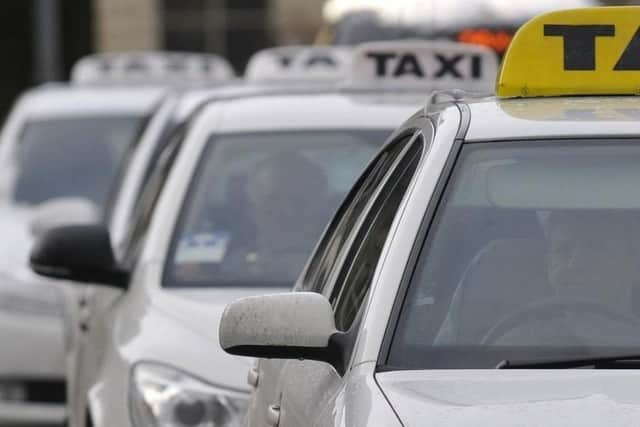Leeds families and elderly 'increasingly using taxis because of bus service cuts'
and live on Freeview channel 276
Older people and families in Leeds are increasingly having to use taxis to get around due to cuts to smaller bus services, it has been claimed.
The comments came during a discussion on improving bus services, during which it was suggested that bus operators needed to focus more on putting smaller services on lesser-served routes.
Advertisement
Hide AdAdvertisement
Hide AdThe operators responded by claiming work was being done to bolster the so-called “core routes”, as these were profit-making, so made sure the companies were also able to serve lesser-used routes.


During a meeting of the council’s infrastructure scrutiny committee, Coun Lou Cunningham (Lab) said: “Whilst I appreciate a lot of work is going on with the core routes, I am interested in smaller routes, that would provide connectivity for older residents and families.
“It might prevent them from using taxis, because during the day, a lot of families and older people that were relying on the smaller connecting services are now using taxis as a mode of transport, getting from A to B.
“I am interested in that smaller network – bring back the minibuses and smaller connectors.”
Advertisement
Hide AdAdvertisement
Hide AdSpeaking in her role as the West Yorkshire Combined Authority (WYCA) transport committee chair, Coun Kim Groves claimed subsidies used by WYCA to keep smaller routes running had been cut over the years, and affected their provision.
She said: “We need to look at all the modes of transport.
“In terms of the routes that have disappeared, they are not commercial routes anymore, and the subsidies we had have been reduced by £3m.
“Over the years they have been subsidised and then taken away, so we have had to look at demand.
“We have had conversations with colleges and employment sites. We are looking at all of that, it is going to take time.
Advertisement
Hide AdAdvertisement
Hide Ad“The one thing I am positive about is that the buses are talked about more than they have ever been talked about.
“While conversations [about rail] are important, the buses are still the biggest carrier of people. More and more communities are becoming socially isolated because they don’t have that small minibus operation.
“Those are the sorts of services we need to get back into the system, but there needs to be a business case.”
Panel members were discussing an item entitled “Advancing Bus Provision”, which looked at progress made in bus services in the city over the last two years.
Advertisement
Hide AdAdvertisement
Hide AdFirst Bus West Yorkshire’s managing director Paul Matthews said: “The reason why we are doing what we are doing with the core network is because the core network is needed to support some of those lesser parts of the network.
“If you imagine the network is made up of good, profitable services and less profitable services, so the reason we are focussing on the core is to ensure they can continue to flourish and support and cross-subsidise some of the lesser performing routes.”
He added that the West Yorkshire Combined Authority was currently looking into alternative services.
A representative from Arriva added that work was being done to ensure services were responding to demand.